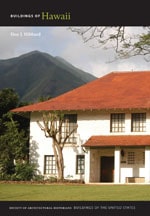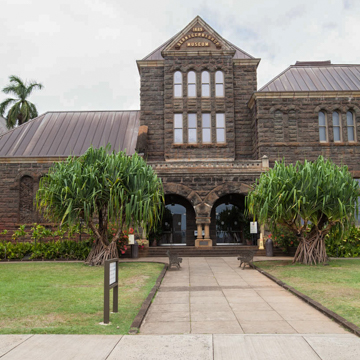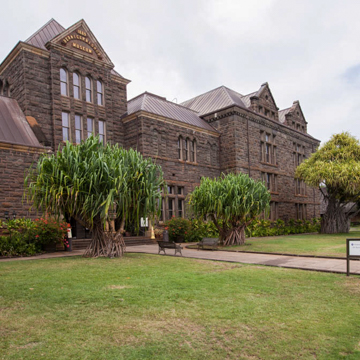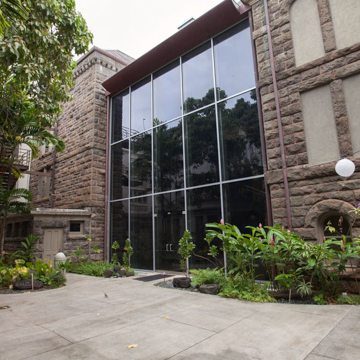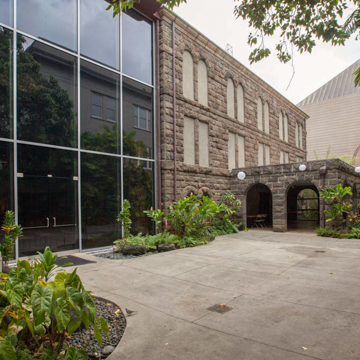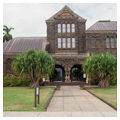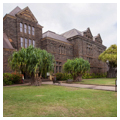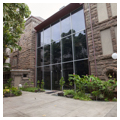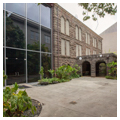This two-story building delights the eye with its solid, single-story portico and adjoining loggia balancing the vertical thrust of the side turret and the gabled entrance bay. Its highly textured stone surfaces and facade of receding and advancing planes create a dynamic tension, imparting a grandness beyond the mere mass of the structure. Charles Reed Bishop, whose name the building honors, contributed the funds to erect it as the administration and classroom building for the recently formed Kamehameha School for Boys. It became a part of the museum in 1961, twenty-two years after the school moved to its present quarters on Kapalama Heights. The turret's wooden third story and bell-shaped copper dome were removed in 1915, much to the detriment of the building's design.
You are here
Bishop Hall
If SAH Archipedia has been useful to you, please consider supporting it.
SAH Archipedia tells the story of the United States through its buildings, landscapes, and cities. This freely available resource empowers the public with authoritative knowledge that deepens their understanding and appreciation of the built environment. But the Society of Architectural Historians, which created SAH Archipedia with University of Virginia Press, needs your support to maintain the high-caliber research, writing, photography, cartography, editing, design, and programming that make SAH Archipedia a trusted online resource available to all who value the history of place, heritage tourism, and learning.

